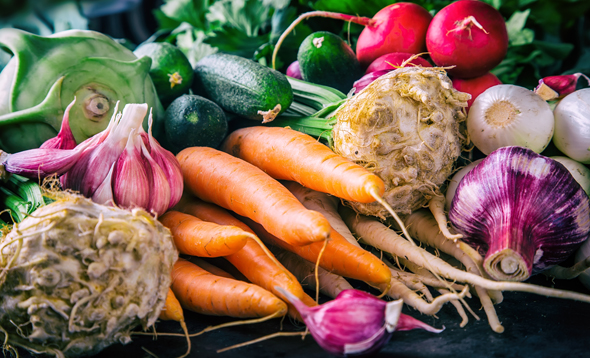That organic living is a conscious health choice
What Can I Eat to Boost Metabolism?
So, you’ve gone a bit overboard with the festive feasting and are looking for ways to lose some weight. While there’s no magic formula for that, there certainly are ways to boost your metabolism to speed up the process.
What exactly is metabolism and how does it affect our weight?
Simply put, metabolism is the process in which your body converts what you eat and drink into energy to sustain life. This energy fuels all of our bodily functions – from breathing, thinking, repairing cell damage, to blood circulation and growth. To lose weight, our metabolism must work harder to burn more energy than what is required to support our basic bodily functions - so that any excess energy won’t be stored as fats.
The tricky part is that metabolic rates vary drastically from one person to another, shift at different stages of the life cycle, and respond differently to changes in lifestyle and nutrition. In my professional experience, effectively boosting metabolism usually requires personalisation, and a bit of trial and error.
Whether you’re looking at losing some stubborn belly fats or trying to fit into your favourite pair of jeans again, here are some scientifically supported metabolism boosters that you can try out:
Go marine with your veggies
The seaweeds, such as hijiki and wakame, used in many Asian dishes contain the compound fucoxanthin. This greenish-brown plant pigment can stimulate increased metabolic function. Certain studies have shown that when consumed regularly, these kelps can reduce body weight by five to 10 per cent. Add some to your soups and salads, and you may subtract an inch or two from your waistline.
Go green – and oolong
Move over Earl Grey and English Breakfast. The synergistic kick of caffeine and antioxidants from these traditionally Asian teas deliver a host of metabolic benefits.
Calorie burning can increase by five per cent for up till an hour after drinking a cuppa. It’s almost like a mini workout in a teacup! Besides firing up metabolism, consuming oolong near mealtimes has been shown to inhibit the absorption of some fats, which translates to a reduction in overall calorie intake.
Hydrate
One of the simplest ways to avoid a metabolic slowdown is to drink up. Nearly every digestive and metabolic reaction in the body requires water. When the body is short on fluids, these essential energetic processes shift into a lower gear. Sipping on calorie-free clear liquids also helps to better gauge appetite. People often confuse thirst for hunger so they end up eating when they’re actually just parched.
Just B it
Hundreds of reactions are required to convert just one tiny protein, carbohydrate or fat molecule from our food into usable energy. The enzymes that drive these reactions rely on vitamin B complex as their entourage. B vitamins open doors, escort, and support enzymes along each step of these long chemical pathways. Without them, enzymes can’t perform well, if at all.
The entire B vitamin family – from B1 to B12 – aid in metabolism. However, the key players for energy production are thiamine (vitamin B1), riboflavin (vitamin B2), niacin (vitamin B3) and pantothenic acid (vitamin B6). Fortunately, these B vitamins are abundant in whole, unprocessed foods – such as whole grains, colourful fruits and vegetables, legumes, raw nuts and seeds as well as animal-based proteins including dairy, egg, fish and meat. If you follow a vegan diet, have numerous food restrictions or your meal choices have been less than healthful, you may consider a B-complex supplement to cover your bases.
Pump some iron
Weight training and muscle building can indeed increase metabolism. However, in this instance, I’m referring to dietary iron instead of dumbbells. Iron is a mineral that’s critical to oxygen transportation within the body. Most metabolic channels require or prefer an oxygen-rich environment. When oxygen levels run low, the cells and tissues of the body must rely on less efficient alternative routes to access, use or release energy from our food.
Iron is available from both animal (red meats) and plant (dark green veggies, grains and legumes) sources. However, it’s important to be judicious with the dosage or type of iron in supplements, so seek guidance from a nutritionist to avoid potentially harmful levels of iron in your body.


























_1672804154.jpg)

_1611290459.jpg)